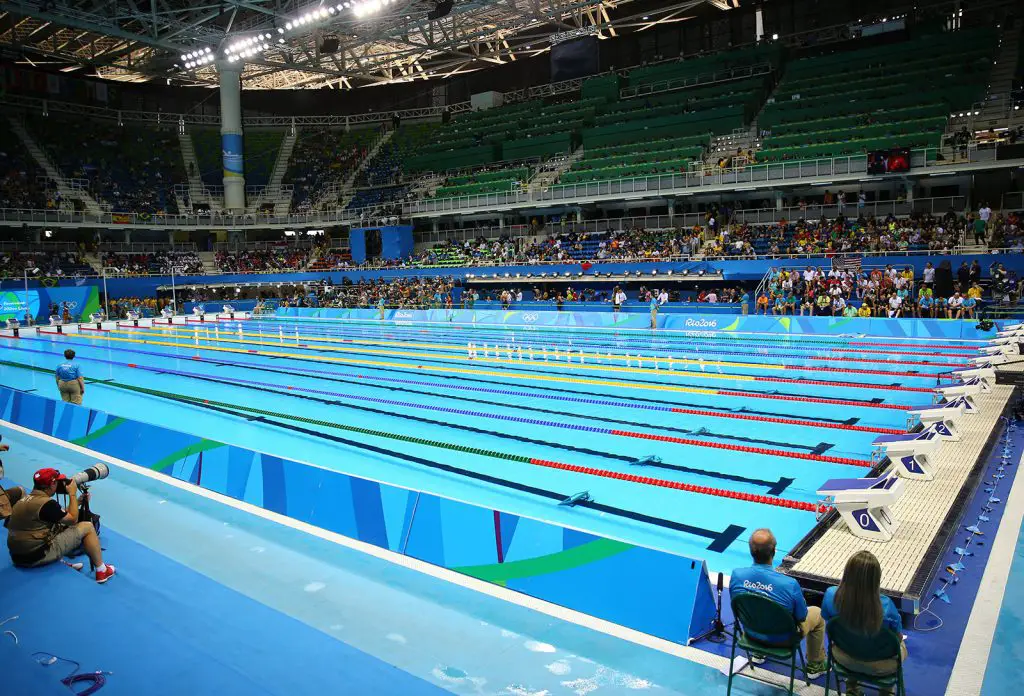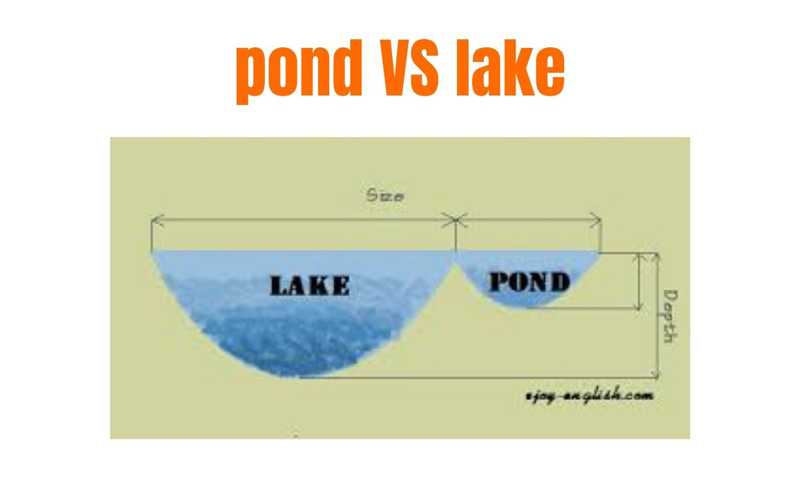An Olympic swimming pool contains approximately 660,430 gallons of water. Welcome to our comprehensive guide on the fascinating world of Olympic swimming pools.
When it comes to these iconic pools, there’s more to them than meets the eye. From the intense competition to the meticulous planning and mind-boggling logistics, Olympic swimming pools are a testament to human achievement and engineering excellence. One vital aspect that goes into creating these pools is the sheer amount of water they hold.
A standard Olympic swimming pool, used in events like the Summer Olympics, typically contains around 660,430 gallons of water. This vast volume is essential for providing a fair and precise environment for swimmers to showcase their skills on a global stage. Let’s dive in and explore the captivating details behind these colossal water bodies.
The Size Of An Olympic Swimming Pool
Length And Width
An Olympic swimming pool has a standard length and width, providing consistent dimensions for competitions. The length of an Olympic pool is 50 meters, whereas the width measures 25 meters.
Depth
The depth of an Olympic swimming pool is also a critical element. Typically, Olympic pools have a depth of 2 meters throughout the entire pool. This standardized depth ensures fair and safe conditions for swimmers during competitions.
Calculating The Volume Of An Olympic Swimming Pool
An Olympic swimming pool is a magnificent feat of engineering, designed to host the world’s most elite athletes. Calculating the volume of an Olympic swimming pool is crucial for maintaining the pool and ensuring it meets the necessary standards for competitions. However, understanding the process of volume calculation can be complex. In this article, we will break down the formula for volume calculation and explain the conversion to gallons for an Olympic swimming pool.
Formula For Volume Calculation
Calculating the volume of an Olympic swimming pool involves using the formula: Volume = Length x Width x Depth. The standard dimensions of an Olympic swimming pool are 50 meters long, 25 meters wide, and at least 2 meters deep. By plugging these values into the formula, we can find the pool’s total volume in cubic meters.
Conversion To Gallons
Once we have the volume in cubic meters, converting it to gallons is essential for practical use. The conversion factor for cubic meters to gallons is 1 cubic meter = 264.172 gallons. By multiplying the volume in cubic meters by this conversion factor, we can determine the total number of gallons in an Olympic swimming pool.
Comparing An Olympic Swimming Pool To Common Containers
Comparing an Olympic Swimming Pool to Common Containers
Gallons In An Olympic Pool Vs. Residential Pool
An Olympic pool holds 660,430 gallons, while a residential pool typically contains 20,000 gallons.
How Many Olympic Pools To Fill A Lake
It would take approximately 13 Olympic pools to fill a 1-acre sized lake.
:max_bytes(150000):strip_icc()/RioOlympicsswimmingpool-GettyImages-519838356-59c09963054ad90011cf5247.jpg)
Credit: www.liveabout.com
Applications Of Knowing The Gallon Capacity
An Olympic swimming pool is a marvel of engineering and design, holding thousands of gallons of water. Understanding the gallon capacity of these pools is not only interesting from a technical perspective, but it also has practical applications in various industries and everyday life. Let’s explore some of the ways knowing the gallon capacity of an Olympic swimming pool can be useful.
Water Usage Perspective
Knowing the gallon capacity of an Olympic swimming pool can provide valuable insights into water usage. Whether you are an environmentalist, a pool owner, or simply curious about water conservation, understanding how much water is required to fill these massive pools is essential. By knowing the gallon capacity, you can easily calculate the amount of water needed to maintain or fill a pool, helping you make informed decisions on water usage and conservation.
Event Hosting
Olympic swimming pools play a crucial role in hosting various aquatic events, including swimming competitions, synchronized swimming, and diving competitions. Understanding the gallon capacity of the pool is vital for event planners and organizers. It helps them determine the amount of water required for these events, ensuring the pool is filled to the appropriate level to accommodate the athletes and meet regulatory standards. Additionally, knowing the gallon capacity allows for efficient planning of water treatment and filtration systems, maintaining the water quality throughout the competition.
Recreational Facilities
Recreational facilities, such as water parks and resort pools, often have large swimming pools for visitors to enjoy. By knowing the gallon capacity of these pools, facility managers can accurately estimate the amount of water required for routine maintenance, including backwashing the filters, refilling the pool, and adjusting chemical balances to ensure a safe and pleasant swimming environment. Understanding the gallon capacity can also help with pricing structures and operational costs, ensuring the facility remains profitable and efficient.
Residential Pool Owners
For those with residential swimming pools, knowing the gallon capacity can be beneficial for maintenance and water conservation. By understanding the capacity, pool owners can accurately measure and add chemicals, ensuring proper sanitation. Additionally, it allows them to calculate the amount of water required to fill or refill the pool, making it easier to manage water usage and avoid wastage. By being aware of the gallon capacity, residential pool owners can maintain their pools effectively and contribute to sustainable water management.
Maintaining An Olympic Swimming Pool
Owning an Olympic swimming pool requires diligent maintenance to ensure water quality and swimmer safety. Proper care is needed to manage water quality and optimize filtration systems.
Managing Water Quality
Regular testing keeps the water clean and safe for swimmers. Balancing pH levels and chlorine content is key to preventing bacteria growth.
Filtration Systems
Efficient filtration systems remove debris and contaminants from the water. Regular maintenance ensures optimal performance of the filtration system.
Fun Facts About Olympic Swimming Pools
Record For Most Chlorine Used
Olympic swimming pools are known for maintaining high standards of cleanliness and hygiene. Did you know that the record for the most chlorine used in an Olympic-sized pool is held by the Beijing National Aquatics Center? It’s astounding that the pool requires a staggering amount of over 300 kg of chlorine to keep the water crystal clear and safe for swimmers.
Energy Consumption For Heating
Heating an Olympic swimming pool requires a significant amount of energy. In fact, the energy consumption for heating the pool water is equivalent to the electricity usage of about 100 households for a year. This emphasizes the magnitude of energy required to maintain the optimal temperature for swimmers and events.
Environmental Considerations Of Large Pools
Large swimming pools, such as Olympic-sized ones, carry significant environmental considerations. From the ongoing water conservation efforts to the exploration of alternative energy sources, these massive bodies of water have a sizeable impact on the environment.
Water Conservation Efforts
When it comes to large pools, water conservation is vital. Efforts to minimize water usage include regular checks for leaks, water recycling, and the use of pool covers to reduce evaporation.
Alternative Energy Sources
In addition to water conservation, exploring alternative energy sources can minimize the environmental impact of large pools. Utilizing solar panels for heating and powering the pool, as well as incorporating energy-efficient technology, are ways to reduce the carbon footprint.

Credit: www.theatlantic.com

Credit: sky-lights.org
Conclusion
Knowing the exact volume of an Olympic swimming pool is essential for various reasons. Whether for maintenance or competition regulation, understanding the number of gallons is key. With this knowledge, you can better appreciate the sheer scale and significance of these iconic pools.
Dive into aquatic facts with confidence!


